Standardized Testing’s Role in College Admissions Is Still Developing
Among the many moving parts to track in college admissions, Moxie is well aware of the ever-changing role of standardized testing. The recent return to requiring standardized test scores by institutions such as Brown, Yale, Dartmouth, and MIT have reignited the debate about their usefulness and fairness. Let’s delve into the merits and drawbacks of using these test scores as a metric for college admissions. In turn, this will shed light on how your student manages their own testing plan.
Standardized Testing: A Level Playing Field for College Admissions (…Maybe)
Test proponents argue that standardized tests provide a common yardstick to compare students from diverse educational backgrounds. In theory, a high score for a student from a school with limited opportunities and resources holds the same weight as one from a school district lush with amenities such as rigorous coursework, internship coordination, and dual enrollment partnerships with local colleges. This seemingly neutral ground allows colleges to assess “college readiness” through a standardized lens that many view as a meaningful way to maximize equity.
But is standardized testing truly a level playing field?
Critics point out the inherent biases within these tests. Socioeconomic factors heavily influence test prep resources and access to quality education. A student from a wealthy family can afford expensive tutors who can equip them with test-taking strategies, which may help optimize their score. However, they do not genuinely enhance a student’s ability to navigate college. According to a foremost authority on college admissions, Oregon State University’s Vice Provost for Enrollment Management Jon Boeckenstedt, it’s possible that zodiac signs are meaningfully predictive for SAT/ACT results because they align with chronological age and, therefore, likely neurological development and maturity. These are just a few points that undermine the supposed fairness of standardized testing.
Predicting Success, or Just Scores?
Another argument for standardized tests is their predictive power in terms of success in college. Scores are believed to indicate a student’s ability to handle college-level work. However, research paints a more nuanced picture.
While there is a correlation between test scores and first-year GPA (FYGPA), it’s a modest one. Many factors beyond test scores contribute to academic success in college, such as a student’s work ethic, adaptability, and passion for learning. Even the argument that the combined value of GPA and standardized test scores (rather than test scores alone) is meaningful has been debunked by multiple studies. Therefore, there is no difference in predictive power between test scores alone and test scores paired with GPAs to determine college success. Though a recent study relied upon by Yale to justify its adoption of a test-flexible (i.e., test scores are required) finds that scores are enough.
A Holistic View of College Admissions: Beyond the Standardized Testing Bubble
This brings us to the core issue: should a single test define a student’s potential? Almost never does one factor determine an admissions decision, even a test score. Many institutions, even those who require scores, have embraced a holistic admissions approach. They consider a wider range of factors, including typical elements of a student’s application (e.g., high school transcripts, essays, extracurricular activities, and letters of recommendation) and, often more important, their own institutional priorities that often override the quality of an application.
The Ivy League’s Shift: A Sign of the Times?
The recent shift by Ivy League institutions is an interesting development, though it doesn’t necessarily demand a sea change in how students, parents, and college counselors approach the application process. Their stated reason – a desire for a more comprehensive picture of applicants – seems contradictory to their action, depending on who you talk to. In short, these recent testing policy announcements don’t need to be viewed as a trend indicator of how the vast majority of admissions offices think about testing.
Should I Send My Scores for College Admissions?
These days, the majority of college applicants will achieve standardized test scores that will add value to at least a portion of their college list. Some students may have scores they wish to send to every college they apply to. Others may have a list of colleges that don’t need to see scores to make a favorable college admissions decision. At Moxie, we take a step-by-step, college-by-college approach to making this decision. Review this flow chart to get a sense of the factors worth considering. This simple tool to help guide your thinking, but is not a replacement for expert advice from a trusted advisor.
The Road Ahead: A Balanced Approach
The future of standardized testing in college admissions will continue to change, along with all the other components that are important to consider. The recent shift might be adopted by a handful of colleges, or it could be the start of a new era in which test scores reclaim their significance. In any case, they will always play a minor role, just one piece of a much larger puzzle. What’s clear is that, setting aside your testing plan, a balanced approach, one that considers a full picture, is key. Standardized tests offer a snapshot of ability, but they do not overshadow a student’s unique experiences, talents, and potential for growth.
For more information on test scores and other factors pertaining to college admissions, contact us. We offer a wide variety of services to help in the college application process, and can address any concerns you may have.
Share this article

Follow us
A quick overview of the topics covered in this article.
- Standardized Testing: A Level Playing Field for College Admissions (…Maybe)
- But is standardized testing truly a level playing field?
- Predicting Success, or Just Scores?
- A Holistic View of College Admissions: Beyond the Standardized Testing Bubble
- The Ivy League’s Shift: A Sign of the Times?
- Should I Send My Scores for College Admissions?
- The Road Ahead: A Balanced Approach
Latest articles
Reading Time : 4 mins
Reading Time : 4 mins
Reading Time : 5 mins




